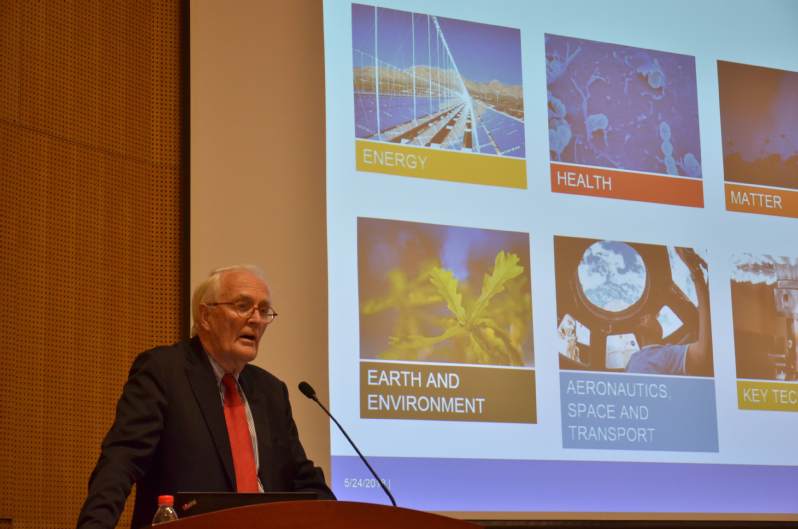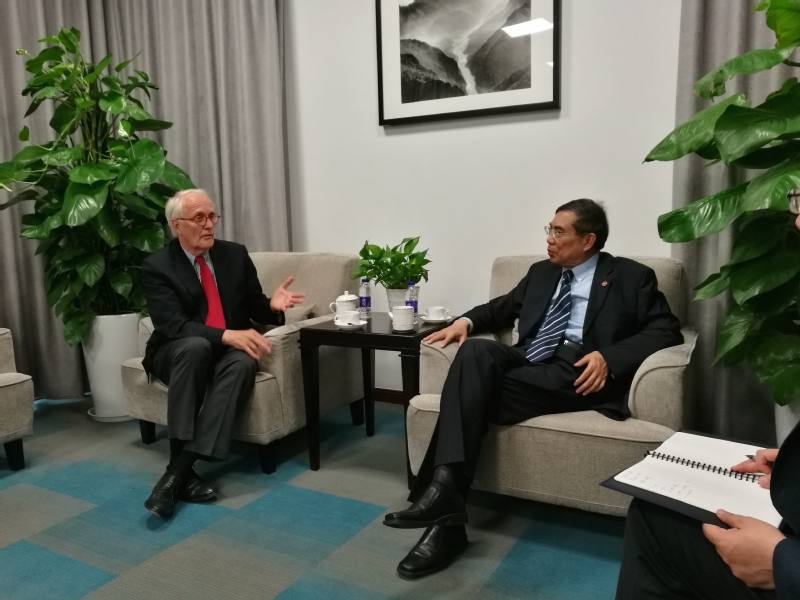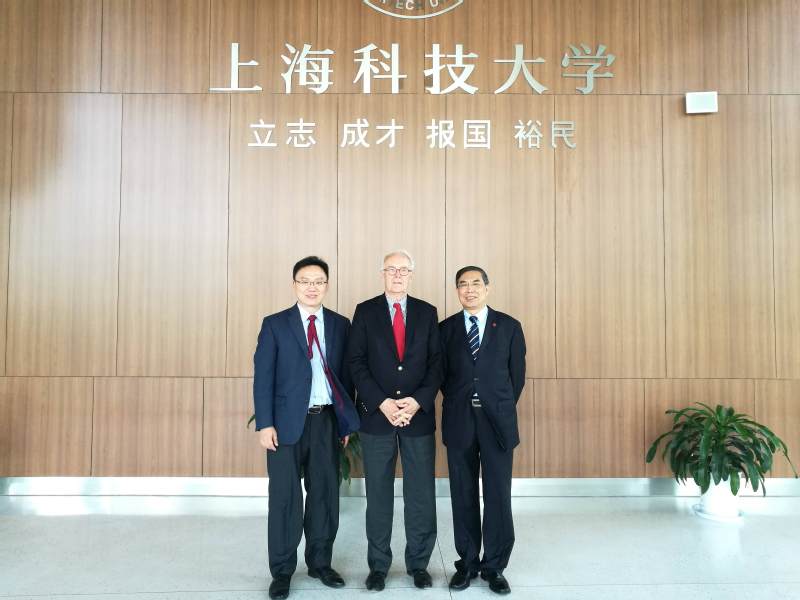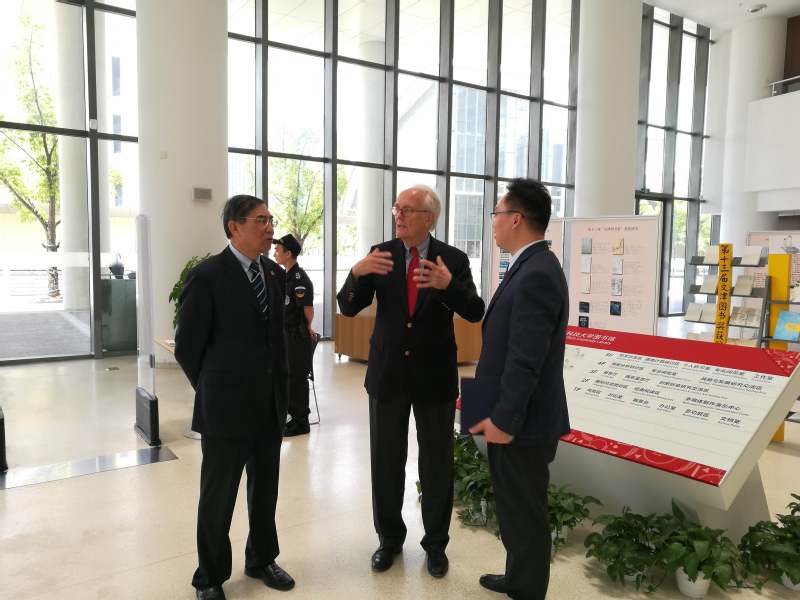On May 24, 2018, Professor Eike Martin, Director of the International Affairs of German Cancer Research Center (DKFZ), visited ShanghaiTech. A ShanghaiTech delegation, headed by President Jiang Mianheng, visited Europe last time in November 2017 and Professor Martin’s visit was to continue the discussion of a possible collaboration.
Vice President Hua Renchang gave Professor Eike Martin a warm welcome to Eike, introduced ShanghaiTech’s recent developments and expressed his hope for substantial cooperation between ShanghaiTech and German Cancer Research Center in the coming future. Professor Martin said he was very impressed by ShanghaiTech’s rapid progress and he was very willing to actively promote cooperation between two sides in scientific research, student exchange, and technology transfer.
Professor Martin also gave a talk in the Ren Building Auditorium, introducing the German Cancer Research Center to teachers and students from School of Life Science and Technology, iHuman Institute, SIAIS Institute, and School of Information Science and Technology. After the talk, teachers and students discussed many broad topics with Professor Martin, including how to cooperate with German Cancer Research Center. Professor Martin was also invited to visit School of Life Science and Technology, iHuman Institute, and SIAIS Institute. He gave a high evaluation of ShanghaiTech’s research achievements in tumor immunity, cell biology, tumor biology, and biological imaging. He said he believes there’s good potential and space for cooperation in the future.
The German Cancer Research Center (DKFZ) in Heidelberg was founded in 1964 and has nearly 3,000 employees. It is Germany's largest medical and life science research institution. The center has more than 90 departments and research groups, and more than 1200 scientists are committed to researching cancer generation, development, risk factors for cancer, and seeking new strategies to prevent cancer. The center's research has greatly improved the screening, diagnosis, and treatment of cancer, enabling thousands of people to prevent cancer or find and treat faster in the presence of cancer. Since its establishment, the Cancer Research Center has made several breakthrough achievements in the field of cancer research. Professor Harald zur Hausen received the 2008 Nobel Prize in Physiology and Medicine for finding that cervical cancer was induced by human papilloma virus (HPV) infection. Professor Stefan W. Hell won the 2014 Nobel Prize in Chemistry for his pioneering work on ultra-high resolution fluorescence microscopy.





